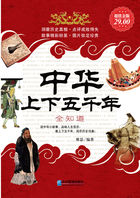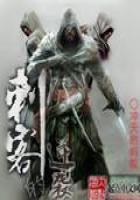'First,' he said, 'let me hear what you know. Colles told me that you were a keen fellow, and had wind of some mystery here. You wrote him about the way you were spied on, but I told him to take no notice. Your affair, Mr Crawfurd, had to wait on more urgent matters. Now, what do you think is happening?'
I spoke very shortly, weighing my words, for I felt I was on trial before these bright eyes. 'I think that some kind of native rising is about to commence.'
'Ay,' he said dryly, 'you would, and your evidence would be the spying and drumming. Anything more?'
'I have come on the tracks of a lot of I.D.B. work in the neighbourhood. The natives have some supply of diamonds, which they sell bit by bit, and I don't doubt but they have been getting guns with the proceeds.'
He nodded, 'Have you any notion who has been engaged in the job?'
I had it on my tongue to mention Japp, but forbore, remembering my promise. 'I can name one,' I said, 'a little yellow Portugoose, who calls himself Henriques or Hendricks.
He passed by here the day before yesterday.'
Captain Arcoll suddenly was consumed with quiet laughter.
'Did you notice the Kaffir who rode with him and carried his saddlebags? Well, he's one of my men. Henriques would have a fit if he knew what was in those saddlebags. They contain my change of clothes, and other odds and ends. Henriques' own stuff is in a hole in the spruit. A handy way of getting one's luggage sent on, eh? The bags are waiting for me at a place I appointed.' And again Captain Arcoll indulged his sense of humour. Then he became grave, and returned to his examination.
'A rising, with diamonds as the sinews of war, and Henriques as the chief agent. Well and good! But who is to lead, and what are the natives going to rise about?'
'I know nothing further, but I have made some guesses.'
'Let's hear your guesses,' he said, blowing smoke rings from his pipe.
'I think the main mover is a great black minister who calls himself John Laputa.'
Captain Arcoll nearly sprang out of his chair. 'Now, how on earth did you find that out? Quick, Mr Crawfurd, tell me all you know, for this is desperately important.'
I began at the beginning, and told him the story of what happened on the Kirkcaple shore. Then I spoke of my sight of him on board ship, his talk with Henriques about Blaauwildebeestefontein, and his hurried departure from Durban.
Captain Arcoll listened intently, and at the mention of Durban he laughed. 'You and I seem to have been running on lines which nearly touched. I thought I had grabbed my friend Laputa that night in Durban, but I was too cocksure and he slipped off. Do you know, Mr Crawfurd, you have been on the right trail long before me? When did you say you saw him at his devil-worship? Seven years ago? Then you were the first man alive to know the Reverend John in his true colours. You knew seven years ago what I only found out last year.'
'Well, that's my story,' I said. 'I don't know what the rising is about, but there's one other thing I can tell you. There's some kind of sacred place for the Kaffirs, and I've found out where it is.' I gave him a short account of my adventures in the Rooirand.
He smoked silently for a bit after I had finished. 'You've got the skeleton of the whole thing right, and you only want the filling up. And you found out everything for yourself? Colles was right; you're not wanting in intelligence, Mr Crawfurd.'
It was not much of a compliment, but I have never been more pleased in my life. This slim, grizzled man, with his wrinkled face and bright eyes, was clearly not lavish in his praise. I felt it was no small thing to have earned a word of commendation.
'And now I will tell you my story,' said Captain Arcoll. 'It is a long story, and I must begin far back. It has taken me years to decipher it, and, remember, I've been all my life at this native business. I can talk every dialect, and I have the customs of every tribe by heart. I've travelled over every mile of South Africa, and Central and East Africa too. I was in both the Matabele wars, and I've seen a heap of other fighting which never got into the papers. So what I tell you you can take as gospel, for it is knowledge that was not learned in a day.'
He puffed away, and then asked suddenly, 'Did you ever hear of Prester John?'
'The man that lived in Central Asia?' I asked, with a reminiscence of a story-book I had as a boy.
'No, no,' said Mr Wardlaw, 'he means the King of Abyssinia in the fifteenth century. I've been reading all about him. He was a Christian, and the Portuguese sent expedition after expedition to find him, but they never got there. Albuquerque wanted to make an alliance with him and capture the Holy Sepulchre.'
Arcoll nodded. 'That's the one I mean. There's not very much known about him, except Portuguese legends. He was a sort of Christian, but I expect that his practices were as pagan as his neighbours'. There is no doubt that he was a great conqueror. Under him and his successors, the empire of Ethiopia extended far south of Abyssinia away down to the Great Lakes.'
'How long did this power last?' I asked wondering to what tale this was prologue.
'That's a mystery no scholar has ever been able to fathom.
Anyhow, the centre of authority began to shift southward, and the warrior tribes moved in that direction. At the end of the sixteenth century the chief native power was round about the Zambesi. The Mazimba and the Makaranga had come down from the Lake Nyassa quarter, and there was a strong kingdom in Manicaland. That was the Monomotapa that the Portuguese thought so much of.'
Wardlaw nodded eagerly. The story was getting into ground that he knew about.
'The thing to remember is that all these little empires thought themselves the successors of Prester John. It took me a long time to find this out, and I have spent days in the best libraries in Europe over it. They all looked back to a great king in the north, whom they called by about twenty different names. They had forgotten about his Christianity, but they remembered that he was a conqueror.















